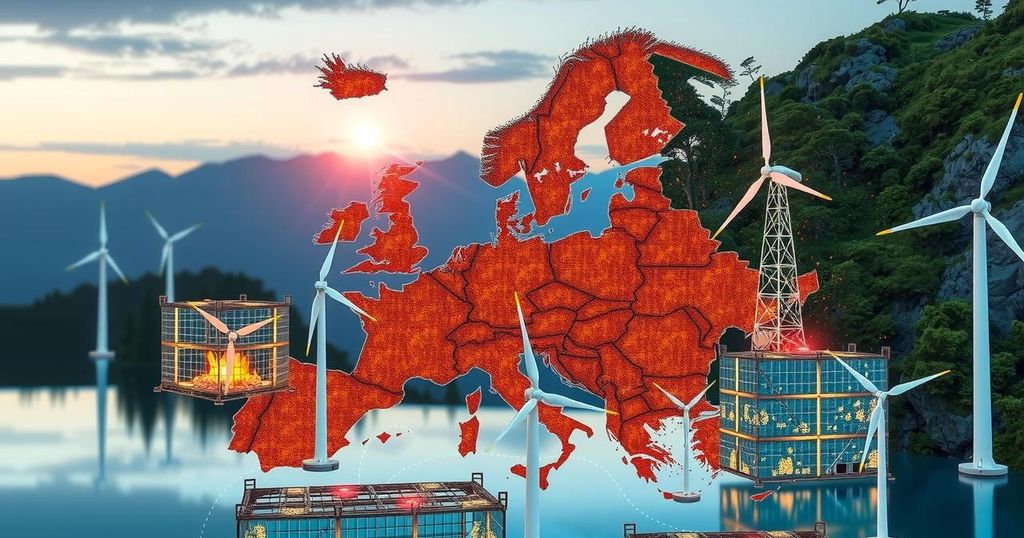Trump’s Energy Plan Aims to Mitigate Economic Impact of Climate Policies

President-elect Donald Trump plans to declare a national energy emergency on his first day in office, aimed at rolling back Biden’s energy restrictions. The strategy seeks to address rising costs and job losses in the energy sector, drawing a contrast between U.S. policy and detrimental European climate regulations. It emphasizes the urgency for economic independence and contends that current regulations are harming American citizens by driving up costs and creating job insecurity.
On his first day in office, President-elect Donald Trump intends to declare a national energy emergency aimed at reversing the energy policies of President Joe Biden. His plan includes lifting restrictions on energy production, abolishing the electric vehicle mandate, and canceling the ban on natural gas exports. This response comes in light of the current national energy crisis largely attributed to the previous administration’s climate policies, which have reportedly contributed to rising costs for Americans and hampered economic independence from foreign competitors, particularly China.
Trump’s strategy presents an opportunity for the United States to avoid the energy pitfalls currently afflicting European nations, where stringent climate regulations have had detrimental effects on the manufacturing sector. Notably, Germany anticipates a continued decline in industrial production, directly linked to costly climate mandates. The implications for American workers, particularly in the auto sector, are dire, as many jobs are threatened due to the influx of cheaper electric vehicle imports from China and soaring regulatory costs.
Under Biden’s administration, new regulations stipulate that by 2032, 70% of vehicles sold must be electric or plug-in hybrid, which could drive prices up significantly, limiting options for the average consumer. Furthermore, California’s stringent standards, supported by federal waivers, could block the production of traditional gasoline-powered vehicles nationwide, further exacerbating inflation and economic strain.
The current dynamics around energy pricing emphasize the complexity and costs linked to renewable energy sources, which have contributed to a significant 32% increase in residential electricity costs since January 2021. Historical data indicates a correlation between regions with high renewable mandates and increased electricity costs, underscoring the challenges posed by the current energy policies.
In summary, Trump’s proposed actions are positioned as a necessary countermeasure against escalating energy prices and loss of jobs, advocating for a return to energy independence and economic stability. This national energy emergency is framed as an urgent response to policies that compromise livelihood and economic potential in America, calling for immediate attention and action to rectify the situation.
The article discusses the proposed energy policies by President-elect Donald Trump, emphasizing the need for immediate action to address economic challenges exacerbated by the preceding administration’s focus on climate change regulation. It highlights contrasting energy strategies between the United States and Europe, particularly Germany, which has suffered significant economic downturns as a direct consequence of stringent climate regulations. The implications of electric vehicle mandates, regulatory waivers, and rising energy costs underline the urgency of establishing a more favorable energy policy framework to ensure economic stability and independence from foreign powers, particularly China.
In conclusion, President-elect Donald Trump’s intended declaration of a national energy emergency aims to reverse the energy policies established under President Joe Biden, characterized as detrimental to American economic interests. The proposed changes seek to alleviate rising costs associated with energy and transportation, maintain job security in key sectors, and establish greater economic independence from foreign influences. This approach advocates for a balanced energy strategy that prioritizes both economic viability and energy security, distinct from the challenges currently faced by Europe due to similar climate policies.
Original Source: www.heritage.org





